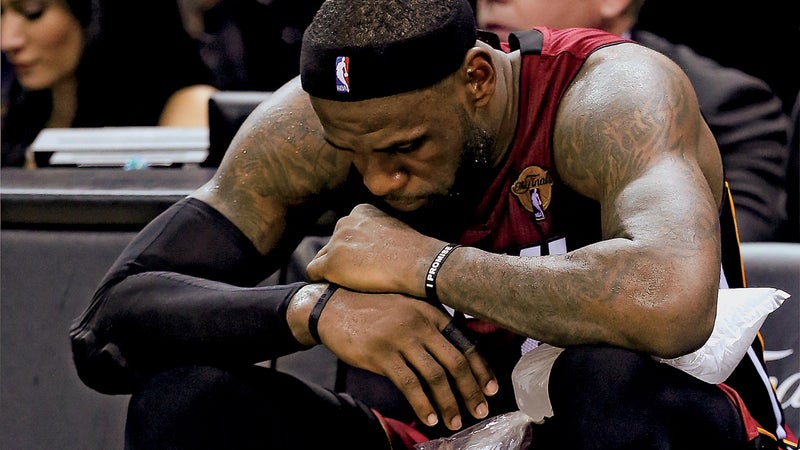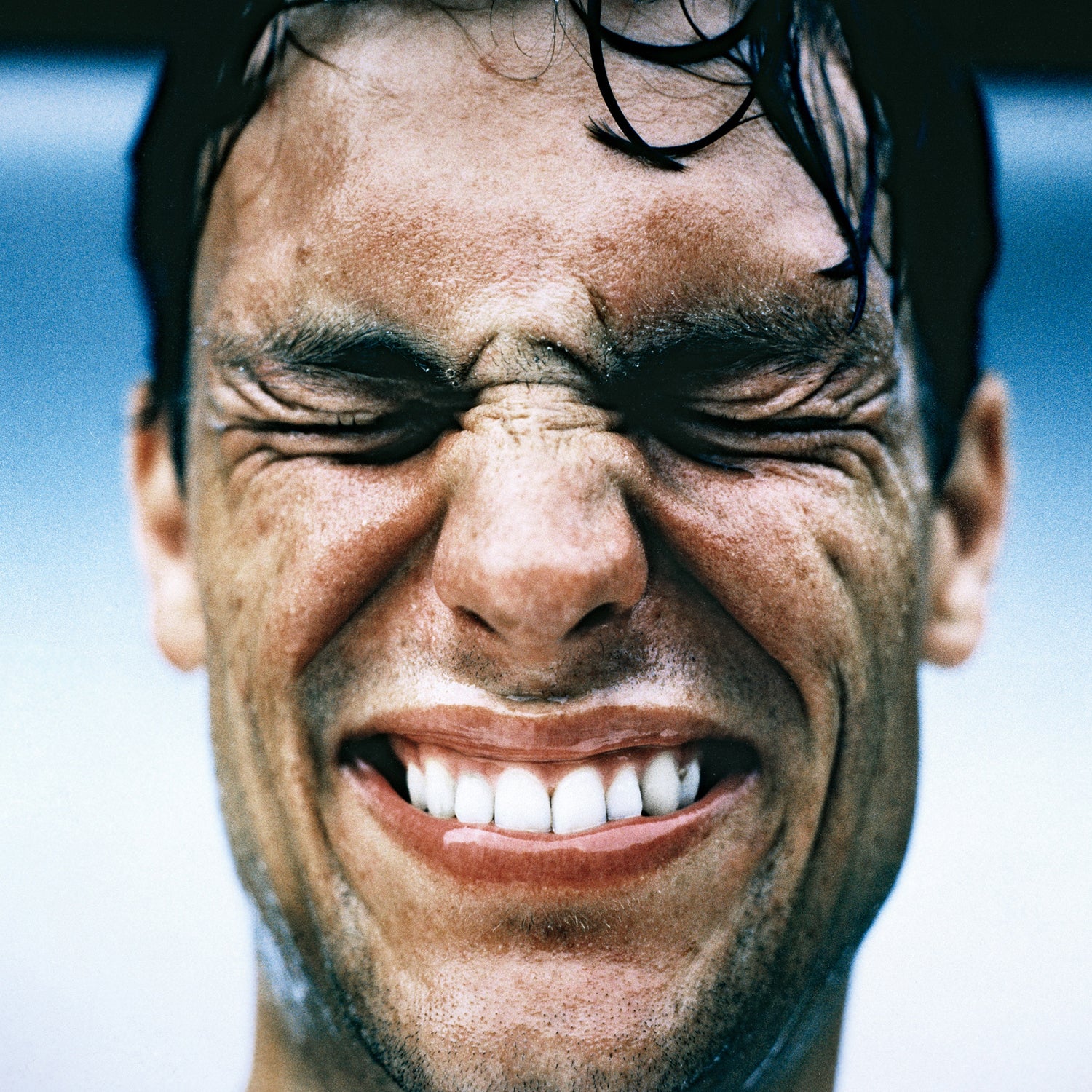When Lebron James famously dropped out of game one of the 2014 NBA Finals with a , many wondered if he was low on electrolytes. Gatorade even teased him on Twitter, suggesting he wouldn’t have cramped if he’d been drinking their product. (James reps Powerade.) He was hardly alone. From tennis star Rafael Nadal (2011 U.S. Open) to marathoner Dathan Ritzenhein (2012 Olympic trials), athletes the world over have always been plagued by painful muscle spasms that show up in the crucial late stages of fierce competition. Inevitably, these cramps are blamed on heat and dehydration. The only problem? Research tells us that neither have anything to do with it.
A Boston startup called says it knows why cramps really happen and, more important, how to prevent them. Founded by Nobel Prize–winning neuroscientist and Harvard neurobiology professor , the company is testing a supplement that it says makes athletes less likely to cramp by resetting the motor nerves in seizing muscles. If true, Flex could revolutionize how cramps are understood and treated.
MacKinnon and Bean became interested in cramping accidentally. In March 2006, they went sea kayaking off an island near Cape Cod. Paddling hard in high seas, both got severe cramps in their arms. “It was actually quite scary,” MacKinnon says. The cramps abated, but the pair soon started looking into the phenomenon, figuring there had to be some key to preventing it.

“We assumed there was a good way to treat cramps,” MacKinnon says, “and we realized that actually, there’s not a lot known.” For much of the 20th century, physiologists believed that athletes cramped because they became dehydrated or lost electrolytes through sweating. But that hypothesis fell out of favor in the late 1990s, when a South African doctor named Martin Schwellnus theorized that distorted neural signaling between an athlete’s muscles and the spine was the true culprit. When you’re fatigued, he proposed, the motor reflex responsible for sending a “relax” signal to the spine becomes tired. When this happens, the “contract” signal keeps firing, and muscles become stuck. With no definitive research on how to combat the faulty signal, athletes were left with two options: don’t push too hard, or stop to stretch when cramps happen.
Bean and MacKinnon, intrigued by the neuromuscular hypothesis, figured there was a third solution. Both men had studied the nervous system throughout their careers, and MacKinnon’s Nobel Prize was awarded for work he’d done on ion-channel receptors, which control how electrical signals are transmitted between cells.
As they pored over the existing research, Bean and MacKinnon zeroed in on one thing: even though cramps didn’t have any relation to electrolyte balances, some studies showed that drinking pickle juice or eating mustard helped prevent them. The pair knew that pickle juice and mustard contain molecules called ion-channel activators, which trigger nerves in the digestive system. These activators are why spicy foods feel hot: they don’t burn you, but they trigger the same nerve response that occurs when you come into contact with heat. Bean and MacKinnon wondered whether the activators in pickle juice and mustard were simultaneously calming nerves in other parts of the body that are responsible for muscle contraction. “We thought, If this is correct, there are much more potent activators,” MacKinnon says.
By then, the pair had also come across research showing how to induce cramps in the lab by electrically stimulating muscles. They began experimenting with a home-brewed drink packed with several kinds of ion activators, taking sips and trying to zap their feet into cramps while hanging out in the kitchen of Bean’s Newton, Massachusetts, home. The early results were so encouraging that they filed a patent for their proprietary blend and formed Flex Pharma.

MacKinnon says that they’ve tested the supplement in randomized, controlled studies and found that it reliably raised the threshold at which athletes cramp: “Take it before your event and the probability that you’re going to cramp is much lower.”
Jeffrey Edwards, an exercise physiologist at Central Michigan University who studies cramps, hasn’t seen Flex’s data, but he’s intrigued by the model. “We have all kinds of evidence that one set of receptors over here can affect nerve functions somewhere else,” he says. Flex hasn’t yet published the results of its studies, but Bean presented a summary of the data at the , and a company spokeswoman says the research will be submitted to peer-reviewed journals.
Flex Pharma’s supplement will be available early next year. MacKinnon says that it helps prevent cramps for approximately five hours. Just don’t expect it to taste like your favorite energy gel. “It’s a mix of hot and pungent,” MacKinnon says. “That’s what makes it work.” Flex is also pursuing FDA approval for a drug that would treat cramps associated with multiple sclerosis and ALS, and last winter the company raised $86 million in an initial public offering. Meanwhile, Bean and MacKinnon continue sea kayaking. Neither has suffered from cramps in years.
Cramp On, Cramp Off
An abbreviated history of battling the charley horse
1930s: A study of men building the Hoover Dam shows that they excrete high levels of salt via sweat. Anecdotally, the workers seem to cramp less after drinking salt water.
1940s: Doctors begin prescribing the antimalarial quinine to relieve cramps.
1965: University of Florida doctors develop an electrolyte- and sugar-heavy drink for the school’s football team. The next season, the Florida Gators win the Orange Bowl, crediting Gatorade.
1990s: Multiple studies find no link between cramping and dehydration or electrolyte loss. A theory emerges that attributes athletes’ cramps to fatigue.
2006: The FDA advises against quinine for cramping after finding it ineffective and dangerous when taken for extended periods.
2010s: Sports drinks account for $7 billion in U.S. sales each year; Gatorade continues marketing to “cramp-prone athletes.”
2015: Flex Pharma goes public and raises more than $80 million after announcing that its supplement targets neural pathways associated with cramping.


